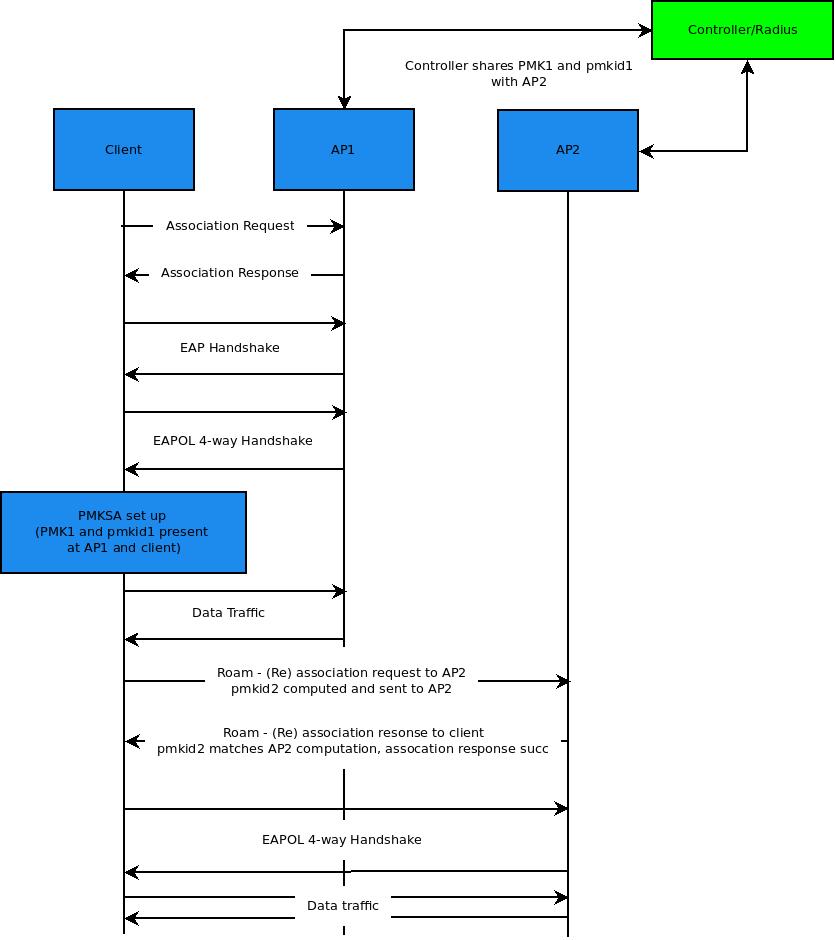Some Vendors such as Cisco extend the PMKID key caching mechanism to pro-actively cache the keys in a WiFi BSS network. This mechanism is also termed as proactive or opportunistic PMKID caching.
As a refresher, The PMKID Key caching as seen in the article <PMKID Key Caching> is to cache the Pairwise Master Key ID at the client side for a previous specific PMKSA association with an AP.
If the client roams back to the same AP,
- The client can send the PMKID to the AP in the association request and
- If the PMK Security Association (PMKSA) for that specific connection is still valid,
- The client and the Access Point do not have to undergo a full EAP handshake and
- Can directly jump to the EAPOL – 4 way handshke.
However, in PMKID caching, the PMKSA and the PMKID is different for different Client associations with different APs
OKC differs in the following way
- A single PMK is maintained between different APs which are connected to a controller behind
- The PMK1 and the pmkid1 computed between the client and AP1 are handed over to the other Access points by the controller
- When an access point roams to a new Access Point AP2
- the client computes a new pmkid – pmkid2 based on
- pmkid1
- BSSID of AP2 – Authenticator Address (AA)
- Client MAC address – Supplicant Address (SPA)
- the client computes a new pmkid – pmkid2 based on
- The access point 2 obtains the PMK1 and the pmkid1 for AP1 from the controller and computes the pmkid2
- If the pmkid2 sent by the client is acceptable to AP2 – the AP2 and the client skip the EAP – handshake and directly engage in a 4-way handshake

Pingback: PMKID Caching | Hitch Hiker's Guide to Learning